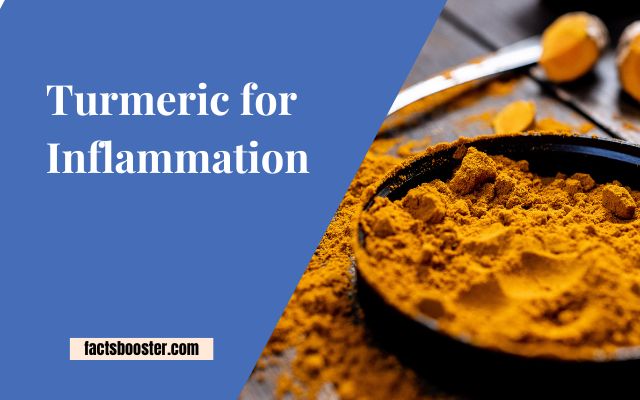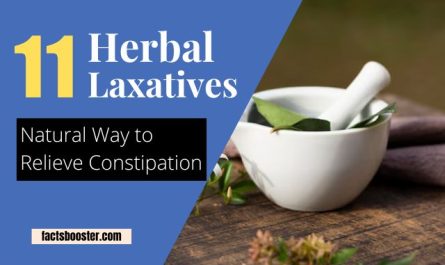Turmeric for Inflammation has been mentioned more and more in recent years. Ever wondered if there’s a natural way to combat inflammation? Enter turmeric, a golden spice renowned for its anti-inflammatory properties, thanks to the active compound, curcumin.
Inflammation is a natural bodily response, but when it becomes chronic, it poses health risks. Fortunately, turmeric and its curcuminoid compounds offer a promising, natural remedy for managing inflammation, thereby supporting our immune system and contributing to overall health.
Key Takeaways:
- Turmeric is a natural anti-inflammatory agent because of its active compound, curcumin.
- Chronic inflammation can be detrimental to health, indicating the importance of effective management options.
- Curcuminoid compounds in turmeric support immune function and overall well-being.
The Science Behind Turmeric and Inflammation
Delving into the essence of turmeric reveals its power player, curcumin, a compound praised for its anti-inflammatory prowess. Science throws light on how this golden spice challenges inflammation head-on.
Curcumin targets chronic inflammation by blocking NF-kB, a molecule that travels into the nuclei of cells and turns on genes related to inflammation, believed to play a major role in many chronic diseases. Studies illuminate curcumin’s ability to mimic the effectiveness of some anti-inflammatory drugs, without the side effects, making it a revered natural remedy for combating inflammation.
The bioavailability of turmeric, however, is a critical piece of the puzzle. It’s noted that without assistance, curcumin’s reach in the body is limited, prompting the need for dietary adjustments to enhance its absorption and ensure it delivers its full anti-inflammatory and antioxidant potential to support the immune system.

How Much Turmeric for Inflammation Relief?
So you’re considering turmeric for its anti-inflammatory benefits and are wondering, “How much turmeric should I take to reduce inflammation?” First off, thumbs up for choosing a natural remedy packed with curcuminoid compounds known for their anti-inflammatory and antioxidant properties.
When it comes to daily turmeric intake, the consensus among experts is that a supplement containing about 60 to 100 mg of curcumin per day is potentially beneficial for inflammation relief. However, the bioavailability of turmeric might have you raising an eyebrow. Turmeric’s curcumin is not easily absorbed by our bodies, but fear not!
Pairing it with piperine, found in black pepper, can boost absorption significantly. Yet, remember, while turmeric for health is a golden idea, too much of a good thing could lead to turmeric side effects. Always consider your personal health conditions and consult with a healthcare provider to tailor the perfect dose for you.
Read more:
Daily Turmeric Intake: Is It Safe?
When considering the daily intake of turmeric as a dietary supplement, it’s essential to weigh the benefits against possible side effects. Turmeric, known for its anti-inflammatory and antioxidant properties, primarily derives these health benefits from curcumin, the active compound found within.
While incorporating turmeric into your routine, especially for combatting inflammation and bolstering the immune system, seems like a natural and beneficial choice, questions arise regarding its long-term safety.
Generally, turmeric is safe for most people when consumed in food or as a supplement in moderate amounts. However, high doses or prolonged use can lead to potential side effects. These might include gastrointestinal issues like indigestion, nausea, and diarrhea.
Furthermore, turmeric has contraindications for individuals with certain conditions; for instance, those with gallbladder disease should avoid it because it can exacerbate symptoms. It’s also wise to consult with a healthcare provider about turmeric supplements, particularly if you’re on medication, to prevent unwanted interactions.
Who Should Avoid Turmeric?
While turmeric is celebrated for its anti-inflammatory and antioxidant properties, making it a cornerstone for natural remedies in combating chronic inflammation and bolstering the immune system, it’s not suitable for everyone. Like any dietary supplement, understanding turmeric contraindications is crucial for safe consumption.
- People with gallbladder disease should avoid turmeric, as it may worsen the condition.
- Individuals on blood thinners or with bleeding disorders may experience increased bleeding due to turmeric’s antiplatelet effects.
- Those scheduled for surgery should discontinue turmeric use at least two weeks before surgery to prevent excessive bleeding.
- Individuals with iron absorption issues may find that turmeric exacerbates their condition, impacting their overall health negatively.
- Pregnant and breastfeeding women are advised to avoid using turmeric as a dietary supplement due to insufficient research on its safety in these groups.
Optimizing Turmeric Absorption
So you’ve decided to incorporate turmeric into your diet for its anti-inflammatory benefits, fantastic decision! But here’s a heads up, simply adding it to your meals might not unlock its full potential. The key lies in enhancing the bioavailability of turmeric to ensure your body makes the most of it.
First off, combine turmeric with black pepper. Sounds simple, right? Black pepper contains piperine, a compound that significantly boosts the absorption of curcumin, turmeric’s active anti-inflammatory agent, by a whopping 2000%.
Another tip is to pair turmeric with fats. Curcumin is fat-soluble, meaning it dissolves in fats and oils, enabling easier passage into the bloodstream and reaching tissue sites of inflammation. Mix turmeric into your avocados, olive oil dressings, or even a spoonful of coconut oil.
Embracing these methods transforms turmeric from just a spice to a powerful ally in your fight against chronic inflammation, making every sprinkle count towards your health and wellness.
Comparing Turmeric with Other Anti-Inflammatory Agents
Many of us seek the quickest relief possible. That’s where the comparison between turmeric and other anti-inflammatory agents comes into play. Turmeric, with its active compound curcumin, offers a natural remedy for chronic inflammation and pain. Its anti-inflammatory and antioxidant properties are well-recognized, making it a popular choice among those looking for natural remedies.
However, unlike common anti-inflammatory drugs that provide immediate relief, turmeric’s effects can take longer to manifest. One reason behind this is the bioavailability of turmeric, which can be enhanced with dietary combinations, such as pairing it with black pepper.
On the plus side, turmeric’s long-term use is linked with fewer side effects compared to non-steroidal anti-inflammatory drugs (NSAIDs), which can cause digestive issues or increase the risk of heart disease when used extensively.
Moreover, turmeric benefits the immune system beyond just inflammation relief. Its antioxidant properties support overall health, making it a valuable addition to one’s diet. However, turmeric contraindications exist, including for those with certain conditions or taking specific medications, underlining the importance of medical advice before incorporating it as a dietary supplement for inflammation.
Turmeric in Your Daily Life: Recipes and Tips
If you’re keen on leveraging the health benefits of turmeric, particularly its anti-inflammatory and antioxidant properties, integrating it into your daily diet can be both simple and delicious.
To start, let’s focus on the bioavailability of turmeric. Adding turmeric to your meals is one thing, but ensuring your body absorbs its active compound, curcumin, requires a bit of know-how. Pairing turmeric with black pepper enhances its bioavailability, thanks to the piperine in black pepper. Now, for some kitchen inspiration:
- Stir Turmeric into Your Morning Smoothie: Kickstart your day with a punch of anti-inflammatory goodness. A teaspoon of turmeric in your preferred blend of fruits and vegetables can do wonders. Remember, adding a pinch of black pepper won’t alter the taste but will significantly increase the absorption of turmeric’s beneficial compounds.
- Golden Milk Before Bed: Wind down with a warm turmeric milk. Simply heat your choice of milk with a teaspoon of turmeric, a dash of cinnamon, and a bit of honey for sweetness. This comforting drink not only supports your immune system but also promotes a soothing, anti-inflammatory effect throughout the night.
- Season Your Dishes: Turmeric’s earthy flavor complements a wide range of dishes – from soups and stews to rice and vegetables. It’s an easy way to incorporate the spice into your diet, enhancing both the taste and health benefits of your meals.
Embracing turmeric for health doesn’t just reduce chronic inflammation; it’s a journey towards overall well-being. So, whether it’s through a vibrant turmeric smoothie, a soothing cup of golden milk, or as a culinary spice, making turmeric a staple in your daily diet could be your natural remedy to combat inflammation, pain, and boost your antioxidant intake.
Bottom Line
In wrapping up, let’s acknowledge the extraordinary role of turmeric in fostering a healthy lifestyle. Its main component, curcumin, isn’t just another dietary supplement; it symbolizes a union between tradition and modern health science in the fight against chronic inflammation. Embracing turmeric for health not only helps in managing pain but supports our immune system through its antioxidant properties, encouraging us to pursue a more holistic approach to our well-being.
References:
1. J Tradit Complement Med. 2017 Apr, “Biological activities of curcuminoids, other biomolecules from turmeric and their derivatives – A review” (1)
2. PubMed, 2017 Oct 22, “Curcumin: A Review of Its Effects on Human Health” (2)


